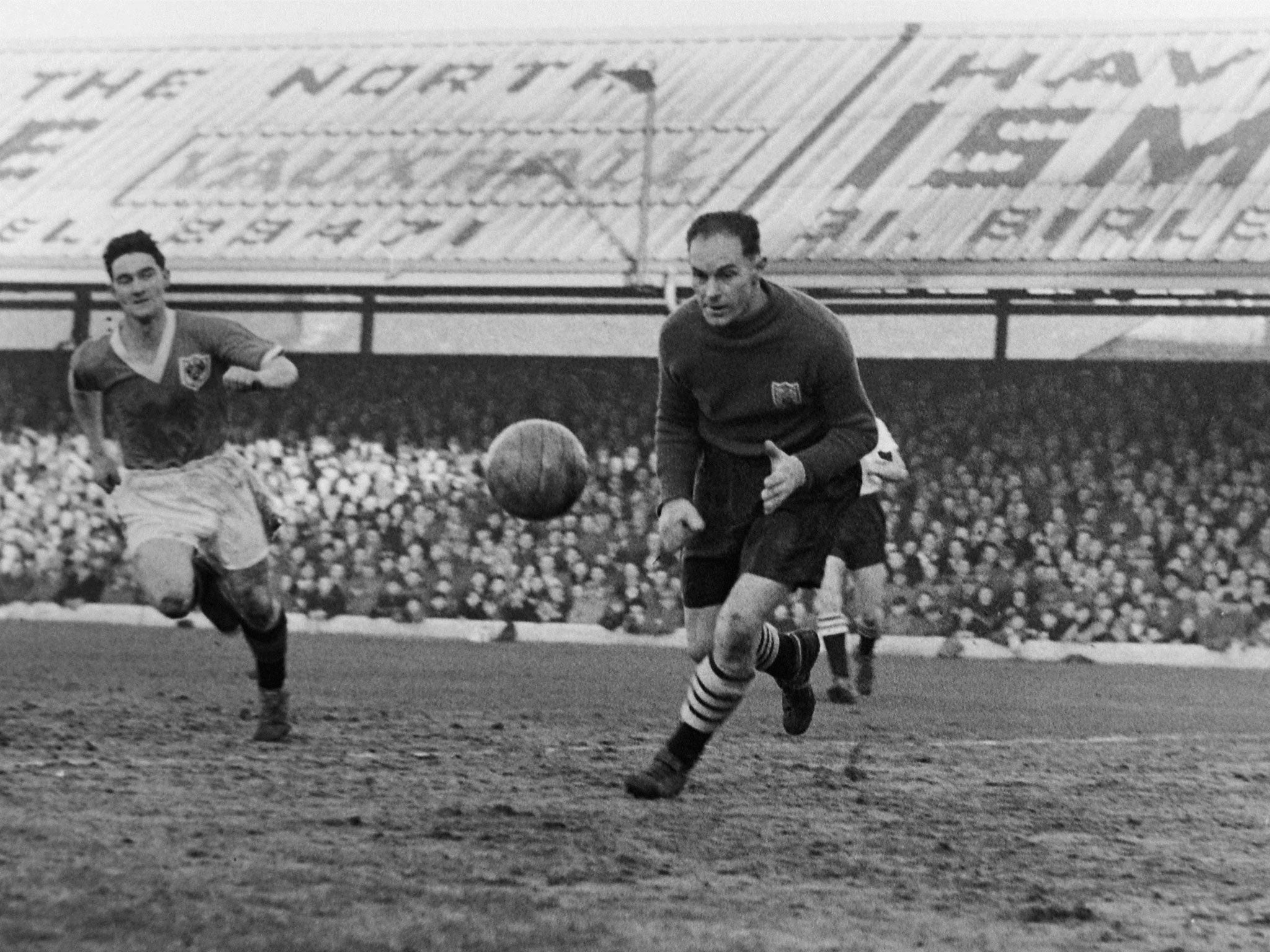
Your support helps us to tell the story
From reproductive rights to climate change to Big Tech, The Independent is on the ground when the story is developing. Whether it's investigating the financials of Elon Musk's pro-Trump PAC or producing our latest documentary, 'The A Word', which shines a light on the American women fighting for reproductive rights, we know how important it is to parse out the facts from the messaging.
At such a critical moment in US history, we need reporters on the ground. Your donation allows us to keep sending journalists to speak to both sides of the story.
The Independent is trusted by Americans across the entire political spectrum. And unlike many other quality news outlets, we choose not to lock Americans out of our reporting and analysis with paywalls. We believe quality journalism should be available to everyone, paid for by those who can afford it.
Your support makes all the difference.Ian Black guarded Fulham's net unflappably throughout most of the 1950s before giving way to the challenge of youth in the form of the more flamboyant Tony Macedo. Black was a much-needed pillar of reliability in a team stacked with talented footballers and colourful characters but prone to an inconsistency which kept them out of the top flight for most of the Aberdonian six-footer's Craven Cottage tenure.
Having shown immense promise as a schoolboy, Black joined his home-town club in 1944 but the impetus of his career was jolted by the war, during which he served in the Army with the Royal Electrical and Mechanical Engineers. During the conflict he guested for Southampton and Chelsea, whom he helped to lift the Football League South Cup, keeping a clean sheet against Millwall in the 1945 Wembley final in front of 90,000 fans desperate for entertainment as the end of hostilities approached.
When peace resumed, Black couldn't oust the much older George Johnstone at Pittodrie and in December 1947 he was sold to Second Division Southampton for £1,000. He thrived immediately, and in spring 1948 he was called up for Scotland, against England at Hampden Park.
His selection ahead of Celtic's Willie Miller and Jimmy Cowan of Morton caused heated debate, especially as Black was an "Anglo", but he was not to blame for the 2-0 defeat, being beaten by unstoppable efforts from Tom Finney and Stan Mortensen, and was unfortunate not to win a second cap. Back at The Dell, the only Southampton player to represent Scotland at the top level in the 20th century continued to excel, contributing impressively to three successive promotion bids, all of which failed narrowly.
Black was happy under the guidance of manager Bill Dodgin, so it was hardly surprising in August 1950 when he followed his mentor to top-flight Fulham – in exchange for the Northern Ireland international 'keeper Hugh Kelly – having conceded slightly less than a goal a game in more than a century of senior appearances.
At Craven Cottage he found himself facing a different challenge, that of avoiding relegation, a task that was accomplished in 1950-51 but not in the next campaign, when Fulham finished bottom. Still, Black excelled, his composure, courage and agility frequently limiting the damage as the Cottagers' rearguard was pounded, even if occasional crosses were dropped.
For the next five and a half seasons, alongside such starry performers as Charlie Mitten, Bobby Robson, Bedford Jezzard and the great midfield general Johnny Haynes, Black was a reassuring presence, even becoming the only Fulham 'keeper to score a goal. At Leicester in 1952, well before the use of substitutes was allowed, he was hurt and switched to the front line for nuisance value. He offered rather more than that, nodding home a cross from winger Arthur Stevens, an act of welcome defiance in a 6-1 defeat.
However, another injury, suffered in November 1957 in his 277th outing for the club, had more far-reaching consequences. Macedo stepped up and performed brilliantly, and the Scot never played another senior match. In 1959, aged 35, he signed for non-League Bath City, remaining at Twerton Park for three years before enlisting with Canterbury City. Later he coached youngsters for Brentford, ran a sports shop in Tolworth, south-west London and played bowls for Surrey.
Ivan Ponting
Ian Henderson Black, footballer: born Aberdeen 27 March 1924; played for Southampton 1947-50, Fulham 1950-59; capped once by Scotland 1948; died 13 December 2012.
Join our commenting forum
Join thought-provoking conversations, follow other Independent readers and see their replies
Comments